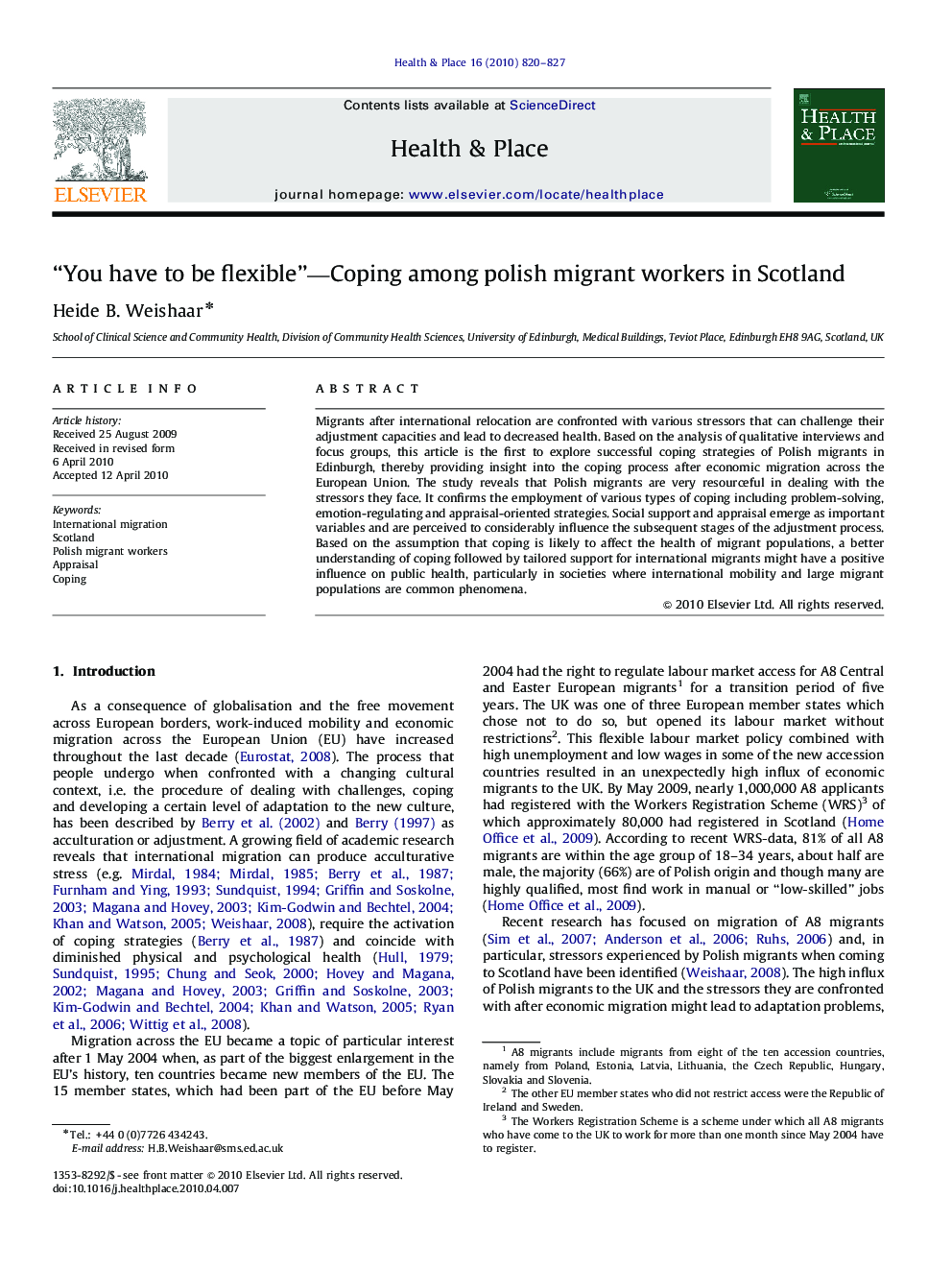| Article ID | Journal | Published Year | Pages | File Type |
|---|---|---|---|---|
| 10502731 | Health & Place | 2010 | 8 Pages |
Abstract
Migrants after international relocation are confronted with various stressors that can challenge their adjustment capacities and lead to decreased health. Based on the analysis of qualitative interviews and focus groups, this article is the first to explore successful coping strategies of Polish migrants in Edinburgh, thereby providing insight into the coping process after economic migration across the European Union. The study reveals that Polish migrants are very resourceful in dealing with the stressors they face. It confirms the employment of various types of coping including problem-solving, emotion-regulating and appraisal-oriented strategies. Social support and appraisal emerge as important variables and are perceived to considerably influence the subsequent stages of the adjustment process. Based on the assumption that coping is likely to affect the health of migrant populations, a better understanding of coping followed by tailored support for international migrants might have a positive influence on public health, particularly in societies where international mobility and large migrant populations are common phenomena.
Related Topics
Health Sciences
Medicine and Dentistry
Public Health and Health Policy
Authors
Heide B. Weishaar,
